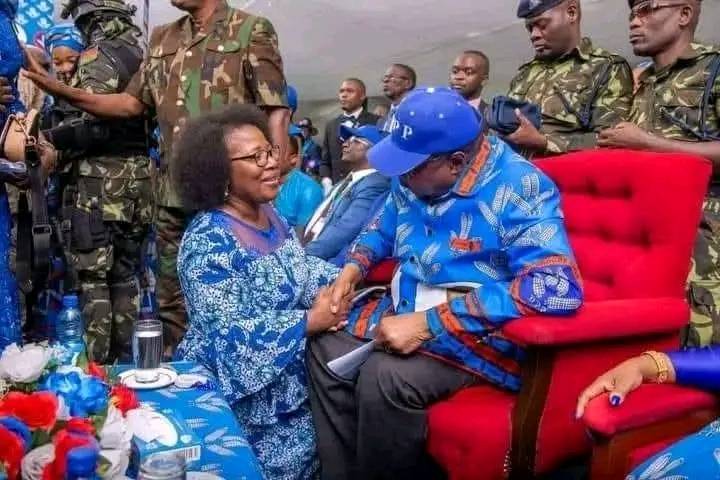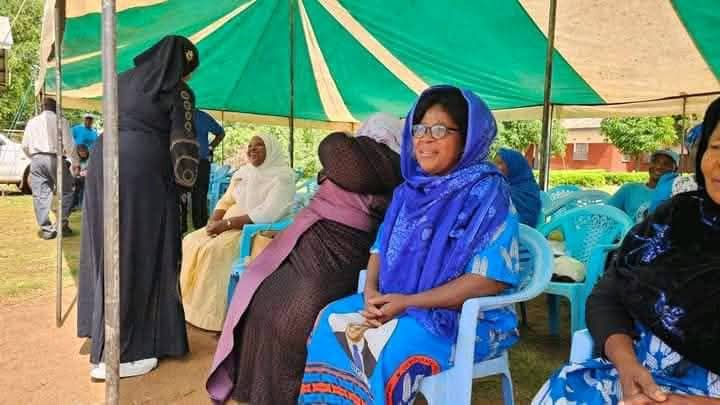Former Malawi Electoral Commission (MEC) chairperson Jane Ansah’s humiliating defeat in the Democratic Progressive Party (DPP) primaries for Ntcheu North East has reignited public anger and accusations of betrayal — not just to the DPP, but to the nation itself.
Ansah, whose tenure at MEC remains synonymous with the controversial Tipp-Ex election of 2019, had long denied any partisan leanings. Yet her open participation in a DPP political contest is now being seen by many as a vindication of what Malawians accused her of then: being a DPP sympathizer working against the will of the people.
Her attempt to secure a parliamentary seat under the DPP banner is being widely interpreted as a symbolic middle finger to the very nation she once pledged to serve impartially.

“Jane Ansah became a symbol of a broken electoral system. She nearly plunged this country into war. Now to openly associate herself with the party that she tried to help manipulate the elections results, it is very embarrassing. It is in all sense raising a middle finger to Malawians,” observed one political commentator.
A political scientist from Mzuzu University did not mince his words.
“This is a betrayal of national trust. Jane Ansah, as MEC Chair, was expected to be the custodian of democratic fairness. By openly aligning herself with the DPP, she has confirmed what Malawians believed in 2019 — that she was never neutral. It’s an insult to our democracy and the people who protested for months seeking justice,” Kalua said.
For many Malawians, particularly those who braved tear gas and police batons during the mass protests led by the Human Rights Defenders Coalition (HRDC) in 2019 and 2020, Ansah’s candidacy is a painful reminder of a broken promise of neutrality.
Sarah Mbewe, a political observer said this was a ‘we told you so’ moment.
“Malawians were vilified and dismissed when they said Ansah was compromised. Some government officials painted protestors as troublemakers.
Today, her actions confirm what people knew in their hearts. This wasn’t a neutral referee — it was someone batting for the home team. And now she wants a jersey too,” Mbewe said.
The 2019 election remains a raw scar in Malawi’s political memory. The annulment of the results by the Constitutional Court was not only a legal victory but a moral one, reaffirming the public’s cry for fairness. Ansah’s refusal to resign for months, even under relentless public pressure, made her one of the most divisive public figures in recent memory.
One governance expert believes her move into frontline DPP politics deepens the wound.
“Her joining the DPP isn’t just a political move — it’s a statement. It says she doesn’t care about what Malawians thought then, or think now. It raises serious ethical questions about her conduct while overseeing the 2019 election,” he observed.
He added that public officers occupying positions of national trust must uphold not only legal obligations but moral ones too.
While Ansah’s loss in the primaries suggests she is no longer a political asset, the DPP’s initial willingness to accept her candidacy points to the party’s enduring discomfort with the past.

“It’s telling,” said Mbewe, “that even with the baggage she carries, there was space for her within the DPP structures. It shows the party’s reluctance to fully detach itself from the 2019 controversy.”
The nation waits to hear Ansah on this one—whether she acknowledges the betrayal Malawians feel, or whether, in line with her recent actions, she maintains the defiant silence that marked her final days at MEC.




